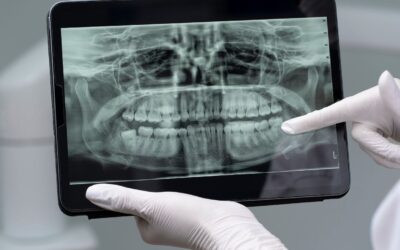Oral surgery, ranging from wisdom teeth removal to corrective jaw surgery, can be a significant medical procedure. However, one common question patients often ask is: Is oral surgery covered by medical or dental insurance? The answer depends on the nature of the surgery and its necessity.
In this article, we will explore the differences in coverage between medical and dental insurance, helping you understand when each type of insurance applies and what costs you may encounter. Read on for all the information you need to make an informed decision.
Understanding the Difference Between Medical and Dental Insurance
Medical and dental insurance serve different purposes. While both can cover procedures related to oral health, the coverage varies greatly based on the type of surgery required.
What is Medical Insurance Coverage?
Medical insurance is primarily designed to cover procedures that are medically necessary, including those that impact overall health, such as jaw surgery to correct a structural issue that hinders eating or breathing. However, it is important to verify what your plan covers, as certain procedures may be excluded.
What is Dental Insurance Coverage?
Dental insurance typically covers preventative and routine care, such as cleanings, fillings, and sometimes surgeries like tooth extractions. However, more invasive procedures may not be covered unless deemed necessary for dental health.
Common Oral Surgeries and Their Insurance Coverage
Wisdom Teeth Removal
-
Medical Insurance Coverage: Typically, if the wisdom teeth removal is medically necessary (e.g., impacted teeth causing pain or infection), medical insurance may cover it. However, if the procedure is purely cosmetic, it is usually excluded.
-
Dental Insurance Coverage: Dental insurance often covers wisdom teeth removal, especially if it’s part of a routine dental care plan. However, you may need to meet a waiting period or co-pays.
Corrective Jaw Surgery
-
Medical Insurance Coverage: If jaw surgery is needed to treat a medical condition such as sleep apnea or a deformity, it is more likely to be covered by medical insurance.
-
Dental Insurance Coverage: Dental insurance typically will not cover jaw surgery unless it’s related to fixing a dental condition, like severe bite issues.
Dental Implants
-
Medical Insurance Coverage: Dental implants are generally not covered by medical insurance, as they are often considered a cosmetic dental procedure.
-
Dental Insurance Coverage: Some dental plans might cover implants if they are medically necessary (e.g., in cases where teeth have been lost due to an accident or disease).
Factors That Influence Coverage for Oral Surgery
Several factors can affect whether oral surgery is covered by medical or dental insurance:
-
The Nature of the Surgery: Medical insurance typically covers procedures that affect overall health, while dental insurance is more likely to cover surgeries related directly to oral health.
-
Medical Necessity: If a procedure is deemed medically necessary rather than cosmetic, there’s a higher chance that medical insurance will cover it.
-
Your Insurance Plan: Coverage varies widely by plan. Always check your policy to see what specific surgeries are included.
-
Pre-Authorization: Some medical plans may require pre-authorization before agreeing to cover the surgery.
Can You Have Both Medical and Dental Coverage for Oral Surgery?
Yes, you can have both medical and dental insurance, and in some cases, both can be used to cover different aspects of an oral surgery procedure.
How It Works:
-
If a surgery has both medical and dental components, the costs can be split between the two insurance plans. For example, if you need a medically necessary procedure (like a jaw surgery) followed by dental work (like implants), you may be able to use both types of insurance.
-
Coordination of Benefits (COB): This is the process of determining which insurance pays first and how the other will contribute. Your insurance company will help coordinate this.
Cost of Oral Surgery Without Insurance Coverage
Without insurance, the cost of oral surgery can be very high, ranging from hundreds to thousands of dollars, depending on the complexity of the procedure. It’s essential to understand the full cost upfront and explore any available financing or payment plans.
FAQs:
1. Is oral surgery ever covered by both medical and dental insurance?
Yes, in some cases, both types of insurance can be used for a single surgery, particularly if different aspects of the surgery are covered by different plans.
2. How do I know if my oral surgery will be covered by my medical insurance?
Your insurance plan will specify coverage for medically necessary procedures. Always contact your insurer before scheduling surgery to ensure the procedure is covered.
3. What is the cost of wisdom teeth removal without insurance?
The cost varies based on the complexity of the surgery but typically ranges between $500 to $2,000 per tooth, depending on whether it’s impacted and requires anesthesia.
4. Will dental insurance cover jaw surgery?
Dental insurance typically does not cover jaw surgery unless it’s directly related to correcting a dental issue, such as bite problems.
5. Can I finance oral surgery if my insurance does not cover it?
Yes, many providers offer financing options or payment plans to help manage the costs of surgery not covered by insurance.
Conclusion:
Oral surgery coverage can be complex, as it depends on whether the procedure is considered medical or dental. For medically necessary surgeries, medical insurance is often the best option, while dental insurance is more likely to cover basic oral surgeries. Always check with your insurance provider to clarify coverage details. Understanding the type of surgery you’re having and its medical necessity will help you navigate your insurance options effectively and avoid unexpected costs.



